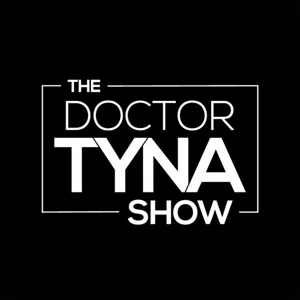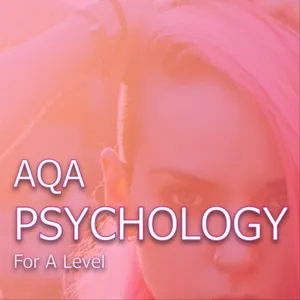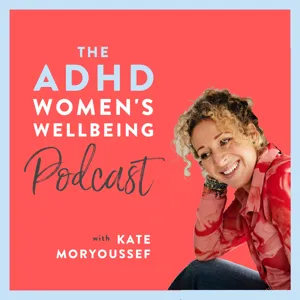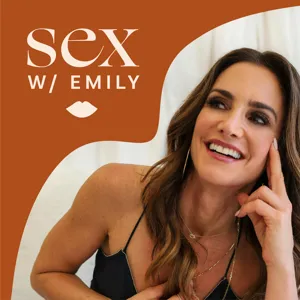EP. 109: Ozempic Done Right Part 3 | Solo Episode

Explore "neurochemistry" with insightful episodes like "EP. 109: Ozempic Done Right Part 3 | Solo Episode", "Mental Illness IS Real", "#1842 - Andrew Huberman", "Approaches in Psychology - The biological approach" and "7. Breaking binge eating cycles with ADHD" from podcasts like ""The Dr. Tyna Show", "Psychology Unplugged", "The Joe Rogan Experience", "AQA A-Level Psychology" and "The ADHD Women's Wellbeing Podcast"" and more!



Andrew Huberman is a Professor of Neurobiology and Ophthalmology at Stanford University, and host of the "Huberman Lab" Podcast.


"We're moving toward a peaceful outcome with food and with yourself"
This week’s episode is with Dr Bunmi Aboaba, a food addiction coach helping her clients achieve a healthy relationship with food to meet long-term health goals. Dr Bunmi’s work covers the full spectrum of disordered eating, including overeating, compulsive eating, emotional eating, and other associated patterns. She is also the author of 'Craving Freedom', a new book for those wanting to build a healthy relationship with food.
A leading authority on food addiction, Dr Bunmi also supports nutritionists, nurses, teachers, health and fitness professionals, dieticians and medical clinicians to help their clients achieve long-lasting results.
Kate and Dr Aboaba talked about
Connect with Bumni here:
Website: www.thefoodaddictioncoach.co.uk
LinkedIn: https://www.linkedin.com/in/bunmiaboaba/
Facebook: https://www.facebook.com/thefoodaddictioncoach/
Twitter: @FoodAddicti2
Instagram @thefoodaddictioncoach
Kate Moryoussef is a women’s ADHD Lifestyle & Wellbeing coach and EFT practitioner helping overwhelmed yet unfulfilled (many with ADHD like her) women find more calm, balance, health, compassion, creativity and clarity in their lives. By using Emotional Freedom Technique (EFT/tapping) in her coaching practice, Kate guides more women to rediscover their inner voice, 'tap' into their expansive wisdom and potential, fulfil their desires and realise themselves outside of the overwhelm, inner pressure and family dynamic. She is also a mum to four children and hopes to write her own book someday!
To download Kate’s new, free guides: 'Suspect you have ADHD...What Next?' and 'The ADHD Women’s Wellbeing' toolkit click here.
If you'd like to join Kate's brand new group programme for newly diagnosed ADHD women, Beyond Your Diagnosis, click here.
Have a read of Kate’s recent articles in ADDitude magazine here
https://www.coachingbykate.me.uk
katemoryoussef@gmail.com
Instagram: @kate_moryoussef
Facebook: Coaching by Kate UK
Twitter: @KateMory
Notes on our sponsors
Sleepy People are a sanctuary of sleep offering a carefully selected edit of bedtime must-haves, handpicked with relaxation in mind, from best-loved brands like Silentnight, Sealy, Jeff Banks, and Snug. They know how


Dr. Nadine Burke Harris’s pioneering work on how childhood trauma shapes adult outcomes led to her being named the first surgeon general of California. That was in 2019. And then, of course, the novel coronavirus hit. The job of California’s surgeon general in 2020 was not what it was in 2019. But in some ways, Burke Harris’s expertise was more necessary than ever.
This conversation is about the growing evidence that difficult experiences we face as children reverberate in our lives decades later. It’s profound research that should reshape how we think about social insurance, public morality and criminal justice. But it’s also a conversation about what the coronavirus has done to children — whether this year will be a trauma that marks a generation, and remakes their lives. How has it changed socialization for toddlers — like my 2-year-old son? What has it meant for children who can’t go to school, who watched their parents lose work or who had family members die alone in a hospital? How do we help them? How do we even understand what they’ve gone through, particularly when they can’t tell us?
We also discuss the lessons California learned from the early difficulties in its vaccine rollout (“simplicity saves lives,” Burke Harris says), why we need to be investing a lot more in mental health therapeutics, the debate over universal child allowances, how to address racial and income disparities in vaccine distribution, the drivers of vaccine hesitancy in Black and brown communities, what a safe path to post-pandemic reopening would look like, why Covid-19 cases have been declining across the country, and much more.
This is one of those conversations that will leave you looking at vast swaths of public policy differently. Don’t miss it.
Mentioned in this episode:
The Deepest Well: Healing the Long-Term Effects of Childhood Adversity by Nadine Burke Harris
“The prevalence of Adverse Childhood Experiences (ACE) in the lives of juvenile offenders”
“Adverse childhood experiences and the risk of premature mortality”
Recommendations:
"Why Zebras Don’t Get Ulcers" by Robert Sapolsky
"The Emotional Life of the Toddler" by Alicia Lieberman
"The Woman Behind the New Deal" by Kirstin Downey
"The Runaway Bunny" by Margaret Wise Brown
You can find transcripts (posted midday) and more episodes of "The Ezra Klein Show" at nytimes.com/ezra-klein-podcast, and you can find Ezra on Twitter @ezraklein.
Thoughts? Guest suggestions? Email us at ezrakleinshow@nytimes.com.
“The Ezra Klein Show” is produced by Rogé Karma and Jeff Geld; fact-checking by Michelle Harris; original music by Isaac Jones; mixing by Jeff Geld.


What are psychedelics? How have these substances influenced human minds and culture? What exactly do they invoke in the brain and how could a renaissance of scientific study into their properties improve our lives? In this series of Stuff to Blow Your Mind episodes, Robert and Joe explore the world of entheogens.
Learn more about your ad-choices at https://www.iheartpodcastnetwork.com
See omnystudio.com/listener for privacy information.


Christmas is here again, so join Robert, Joe and Christian as they discuss a few holiday monsters and tend to your listener mail.
Learn more about your ad-choices at https://www.iheartpodcastnetwork.com
See omnystudio.com/listener for privacy information.


Will the hopeless romantics of the future fall in love with robots? In this episode, Robert and Julie explore the line between love and hate -- and what a world of beautiful robots may mean for the future. Tune in to learn more.
Learn more about your ad-choices at https://www.iheartpodcastnetwork.com
See omnystudio.com/listener for privacy information.
Stay up to date
For any inquiries, please email us at hello@podcastworld.io